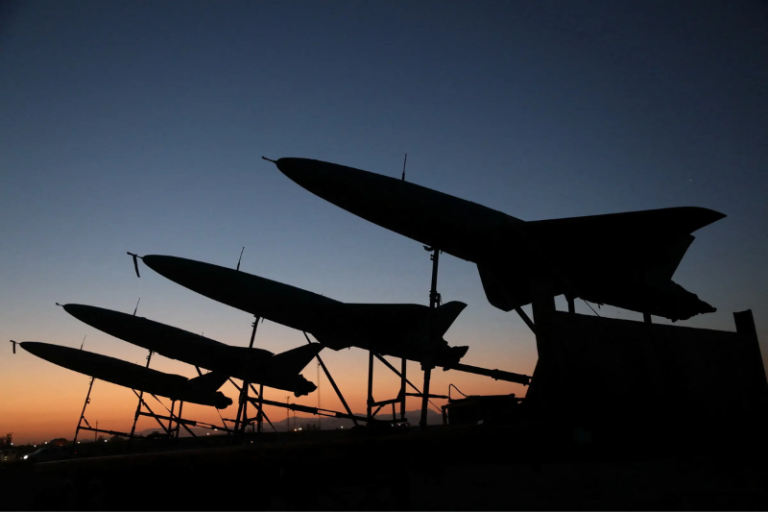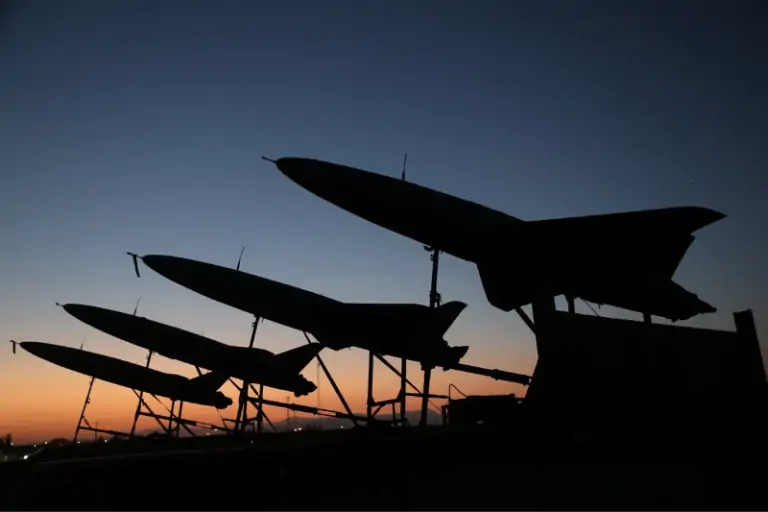

irans drone diplomacy in sudan unraveling a complex alliance
Sudan’s recent embrace of Iranian combat drones marks a significant turn in the age-old relationship between the two nations. Reports suggest that Sudan has received shipments of the Mohajer-6, a single-engine unmanned aircraft known for its reconnaissance and precision-strike capabilities. As the nation grapples with internal conflicts, the infusion of Iranian weaponry raises questions about regional stability and potential escalation.
The Mohajer-6, a formidable addition to Sudan’s military arsenal, boasts an impressive array of features. With an endurance of up to 4 hours, it provides persistent surveillance and strike capabilities. Carrying a payload of up to 40 kilograms, including guided missiles and bombs, it is a versatile tool for modern warfare. Equipped with electro-optical and infrared sensors, the drone ensures pin-point targeting, while its electronic warfare capabilities can disrupt enemy communications and radars.
Despite the technological prowess of the Mohajer-6, its effectiveness hinges on skilled operators and ground support. Critics point out that using and maintaining these drones calls for specialized training and technical know-how, frequently provided by Iranian personnel. This presence of advisers and technicians on Sudanese soil raises concerns about an expanded Iranian footprint in the region, echoing similar patterns observed in conflicts in Syria, Lebanon, Iraq, and Yemen.
The scenario in Sudan mirrors Iran’s involvement in other conflict zones, where Iranian advisors and technicians played a crucial role in training local forces and operating drone fleets. This not only underscores Tehran’s growing military influence but also hints at the potential for proxy wars. As Sudan remains fractured after a 2023 military coup, internal conflicts and tensions with neighboring South Sudan add layers of complexity to the situation.
The deployment of Iranian drones in Sudan complicates the already fragile geopolitical landscape in the Horn of Africa. With Sudan facing internal strife and regional tensions, the introduction of Iranian weaponry raises anxieties about stability and potential escalation. The nature of the Sudanese-Iranian drone deal remains unclear, leaving questions about its impact on Sudan’s relations with regional and international powers.
As this latest chapter in the Sudan-Iran alliance unfolds, critical questions emerge. Will these drones be used solely for internal security, or is there a potential for external deployment? How will this impact Sudan’s relations with other major powers vying for influence in the region? The presence of Iranian combat drones on Sudanese soil adds a new layer of complexity to an already turbulent region, with potential repercussions for both Sudan and the wider Horn of Africa.
As Sudan embraces Iranian combat drones, questions loom over the diplomatic repercussions of this newfound alliance. The geopolitical landscape is further complicated by Sudan’s pivotal 800-kilometer stretch of the Red Sea coastline, which has turned its ports into a center of international competition among major powers such as the US, China, Russia, and Turkey.
The Red Sea coastline, strategically located at the crossroads of Africa, the Middle East, and Asia, has become a focal point for major powers seeking to expand their influence. The ports in Sudan hold immense economic and military significance, intensifying international interest in the region. Iran’s growing presence in Sudan adds another layer to the complex dynamics playing out along the Red Sea.
Rob Walter Resigns his Position as coach for the Proteas men's team for white-ball games because personal problems needed attention.…
Starting April 2, South African drivers will get lower costs when filling their tanks as fuel prices decrease for all…
The U.S.-based driver training company Zutobi analyzed road safety worldwide and found South Africa stays last in driving danger since…
The Basketball Africa League (BAL) returns for its 2025 season with exciting changes and developments. Since 2019 the NBA-linked basketball…
The Somali president supports their military forces to eliminate the threats from Al-Shabaab, ISIS, and Al-Qaeda. The Somali National Army…
UAE President Sheikh Mohamed bin Zayed Al Nahyan held talks with President Faustin Archange Touadéra of the Central African Republic…
This website uses cookies.